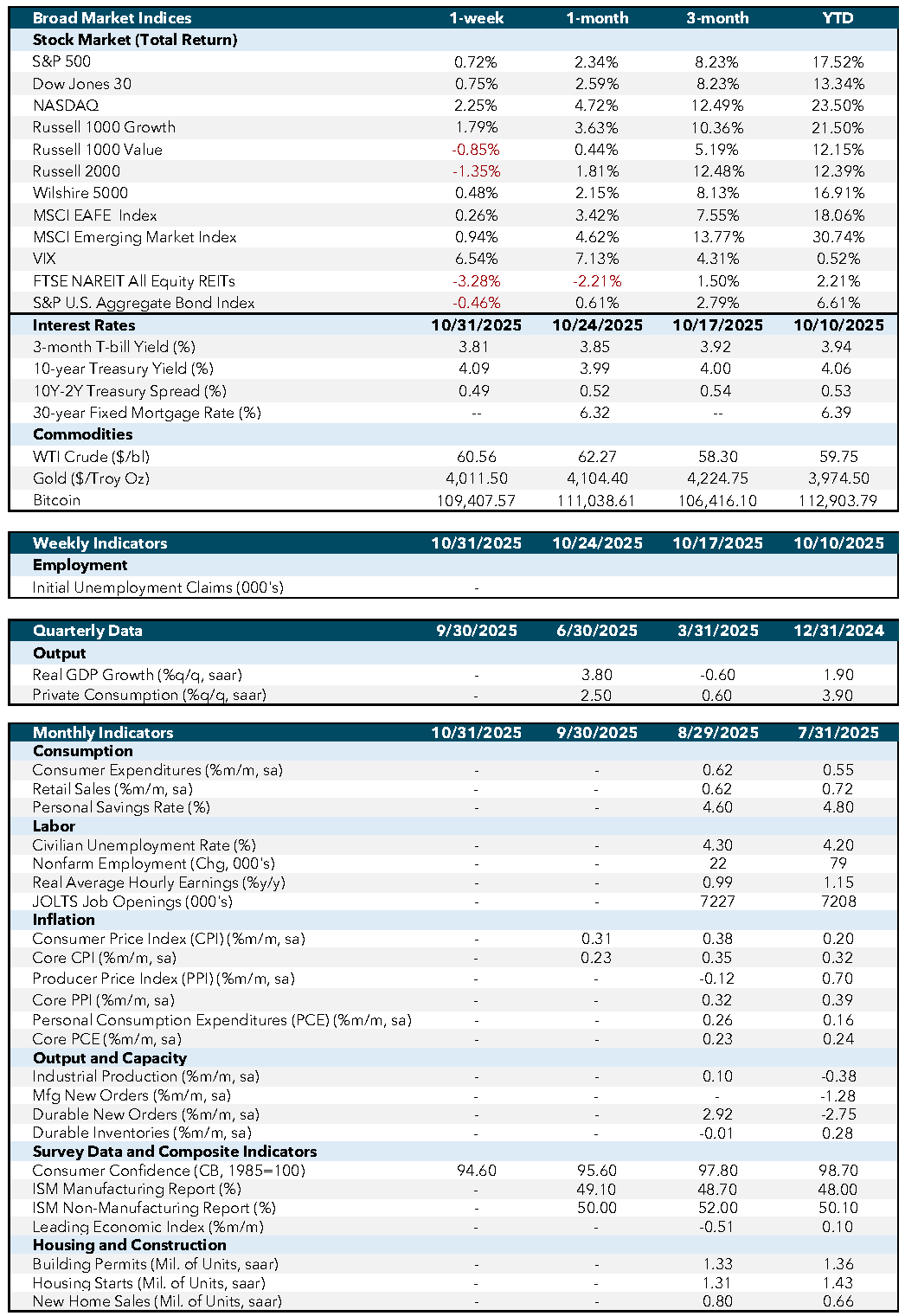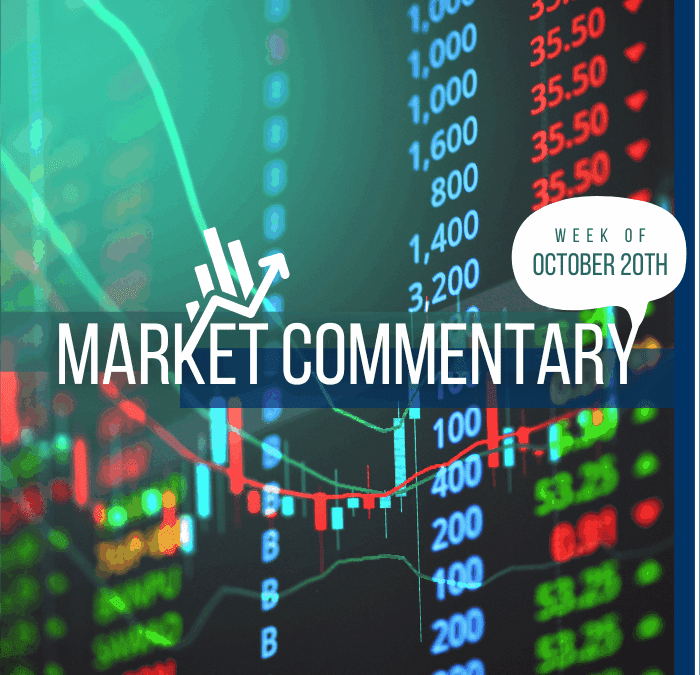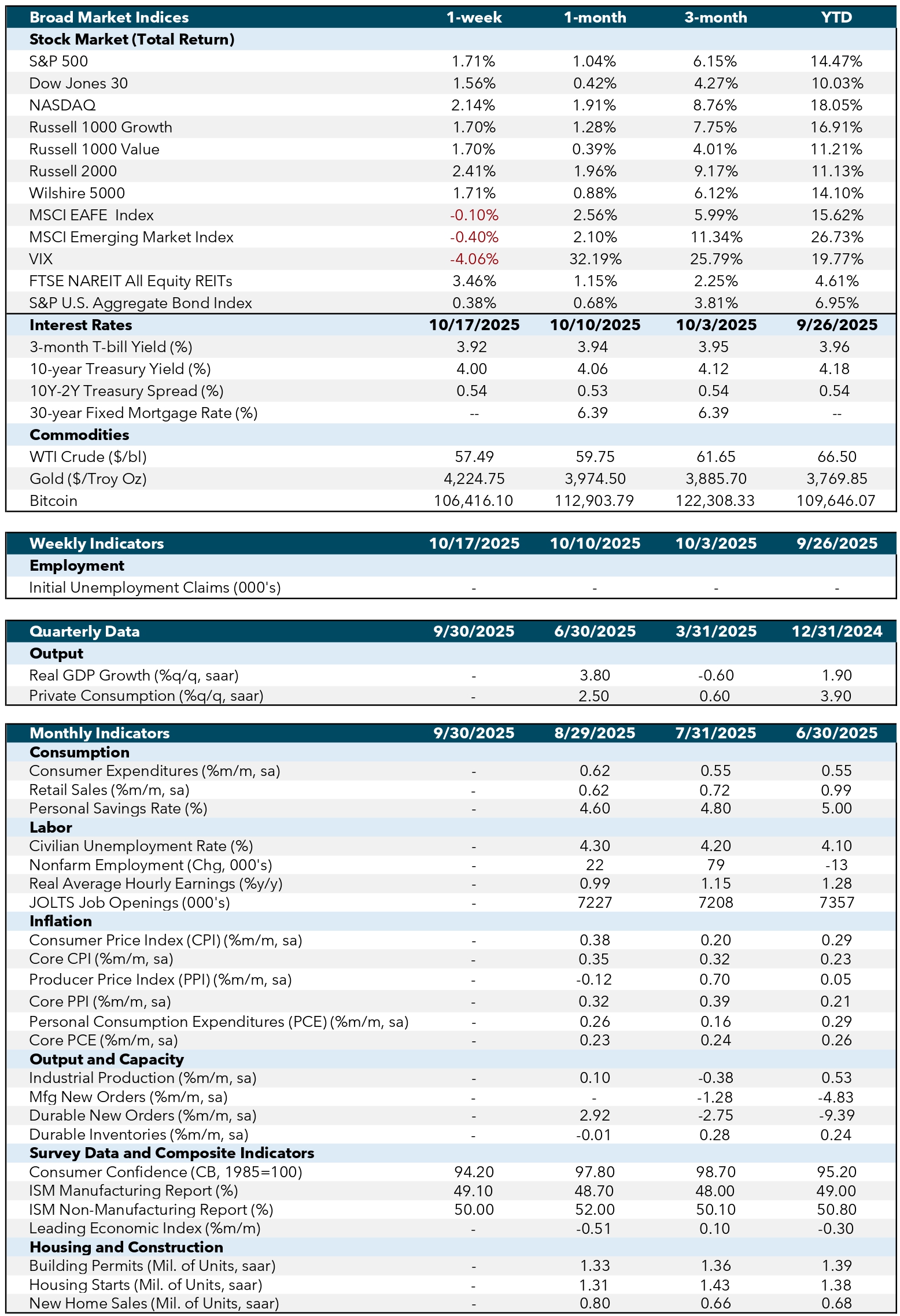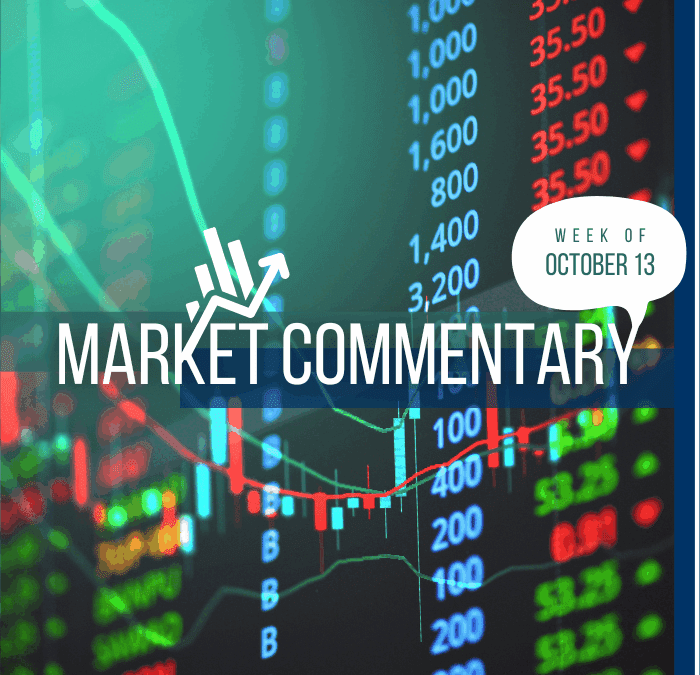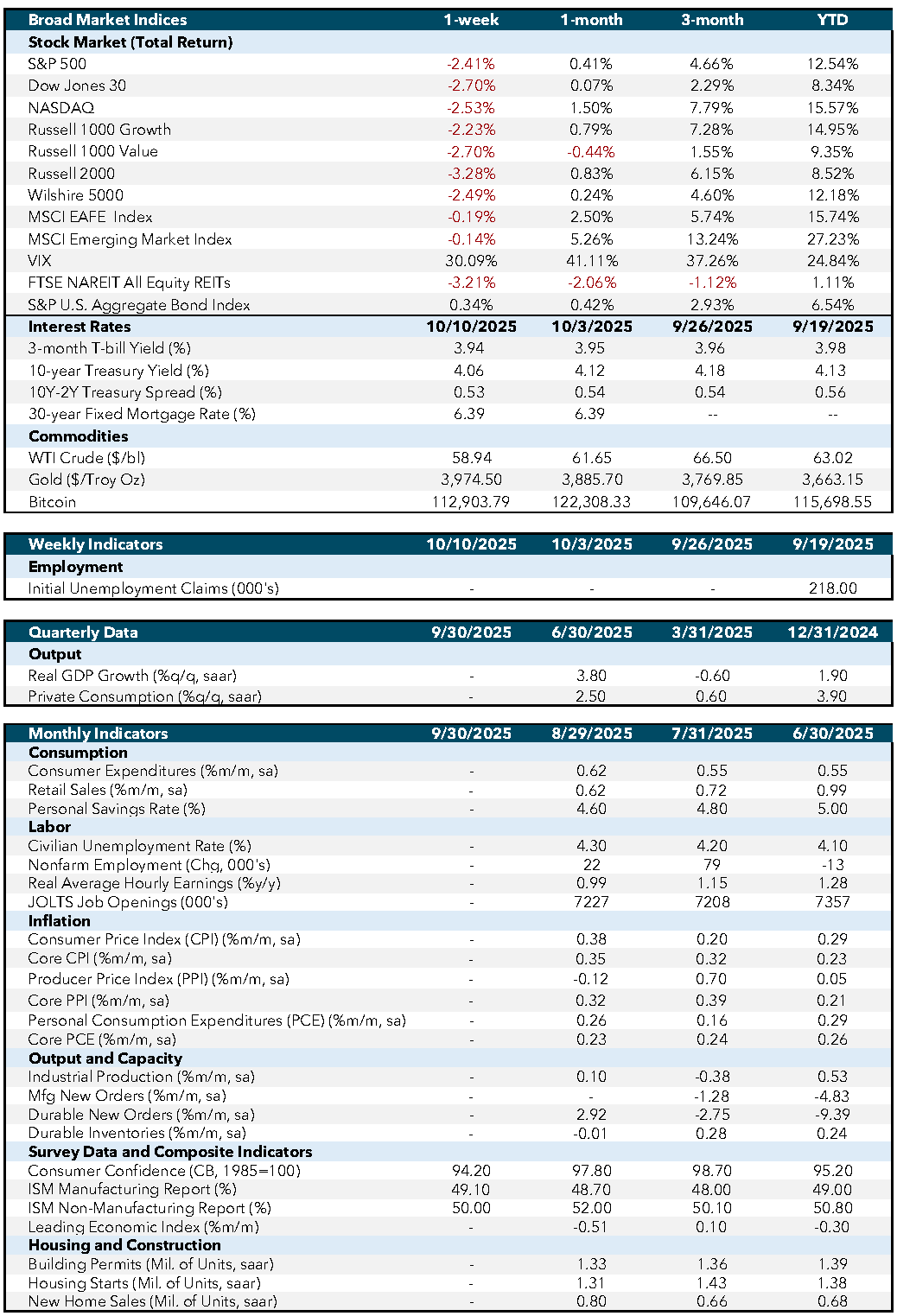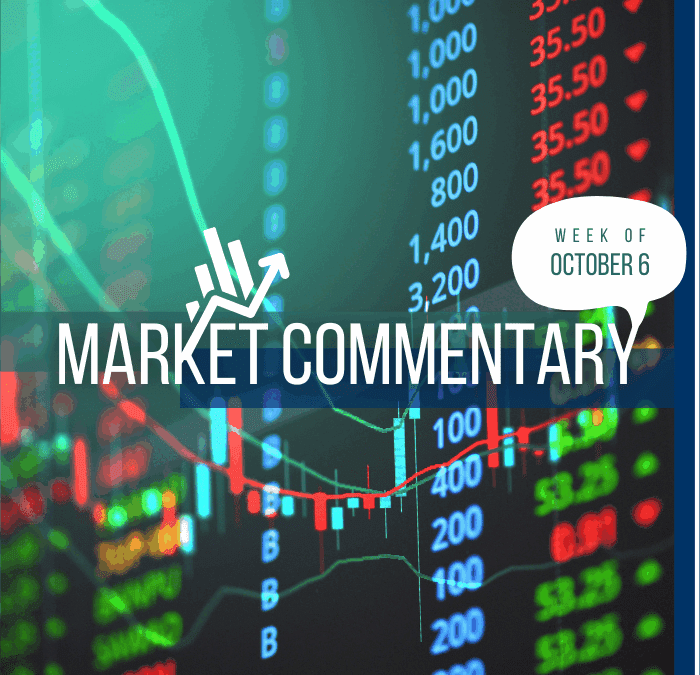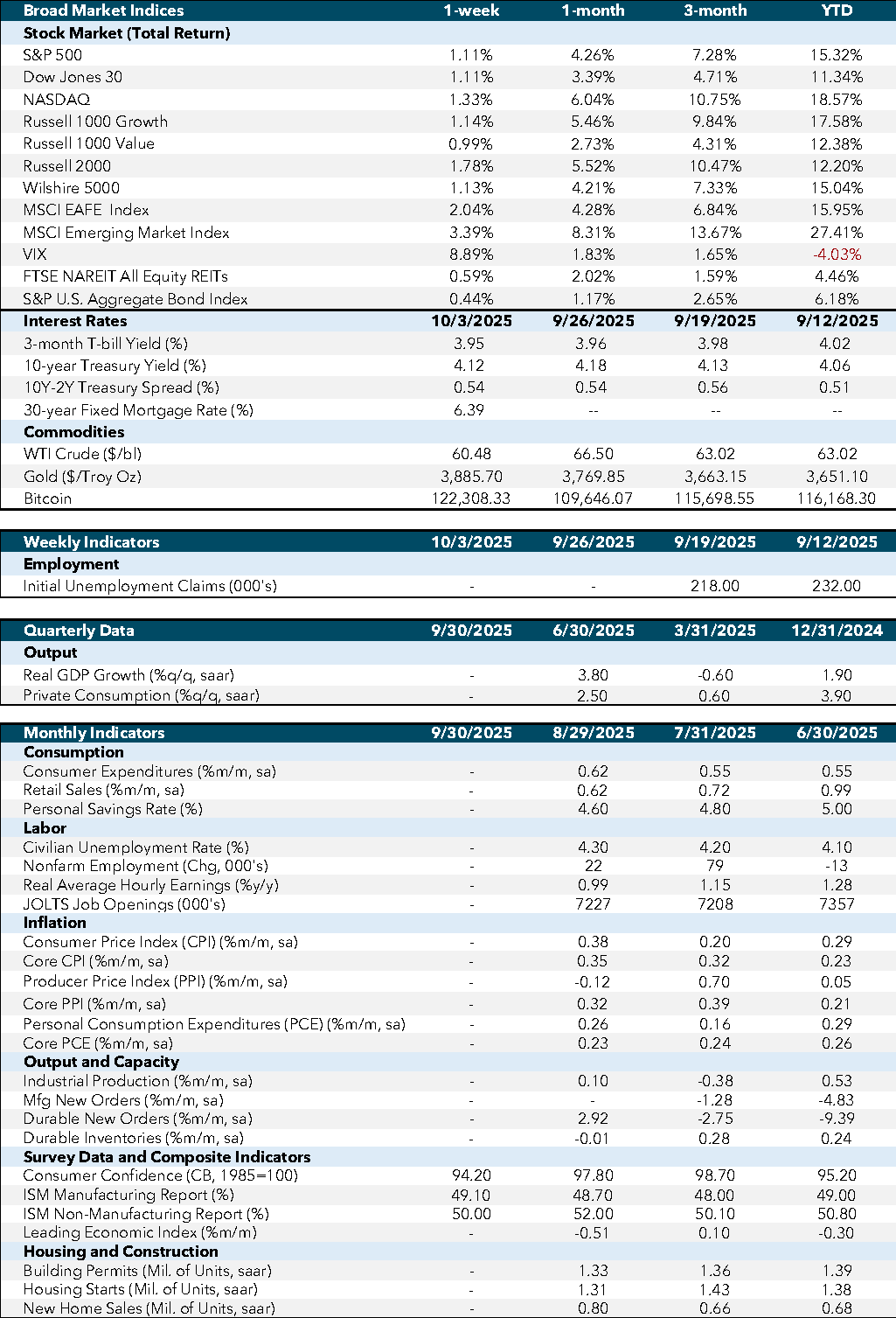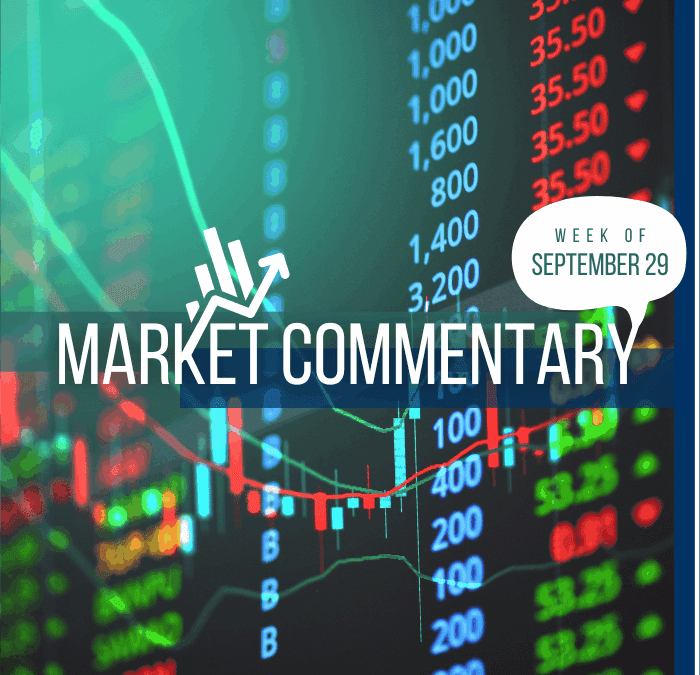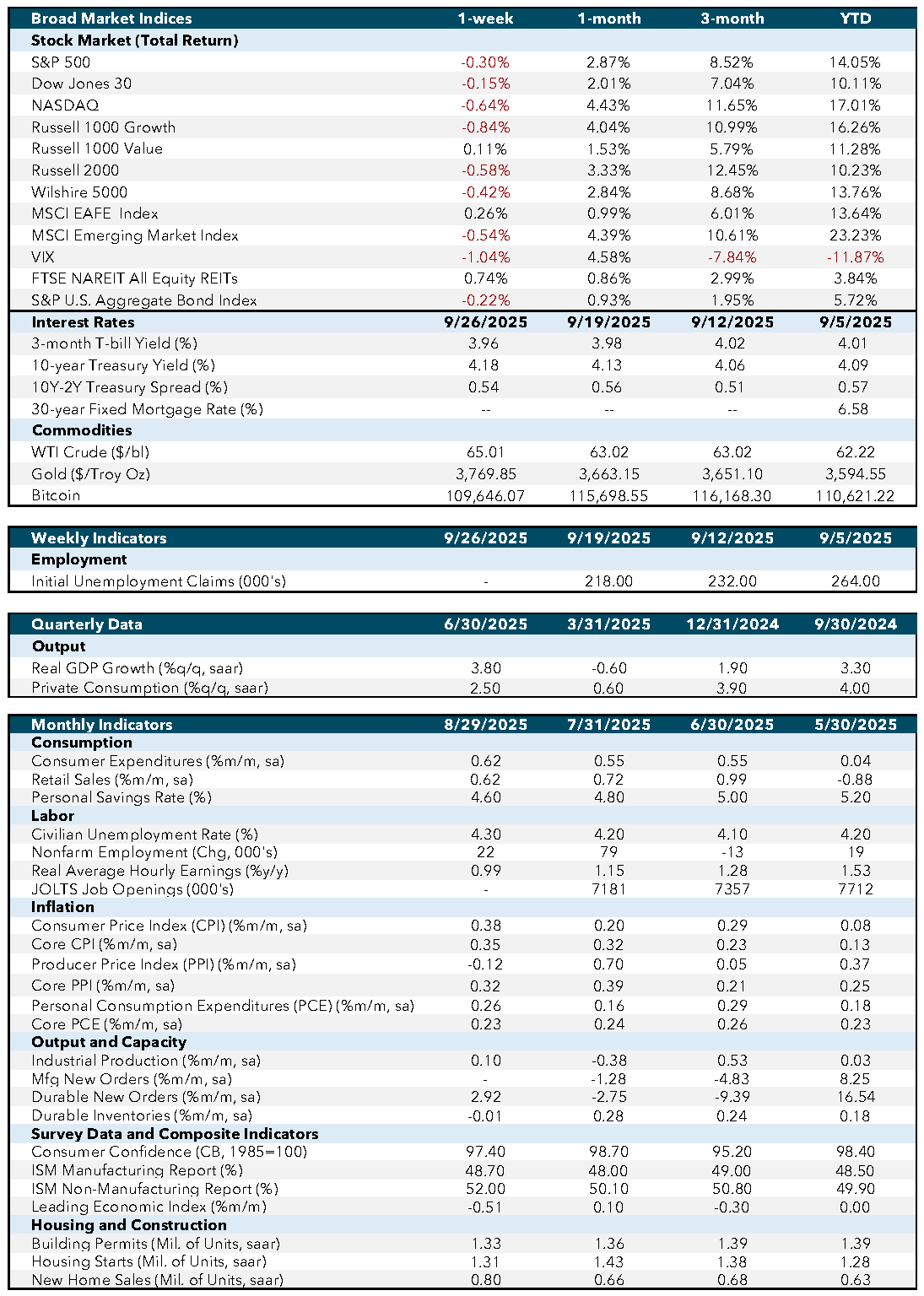
Market Commentary | November 3rd, 2025
Weekly Market Commentary
November 3rd, 2025
Week in Review…
U.S. consumer confidence fell modestly in October, with The Conference Board’s headline index easing to 94.6 from a revised 95.6 in September. The decline reflected weaker expectations for business, income, and employment over the next six months, while consumers’ assessment of current conditions improved slightly. Respondents cited rising prices and the ongoing government shutdown as key sources of concern, noting that the policy uncertainty has made it harder to gauge the strength of the labor market and inflation trends. Overall, the report suggested that households remain cautious about their economic prospects heading into the final quarter of the year.
At its October meeting, the Federal Open Market Committee (FOMC) voted to cut the federal funds rate by 25 basis points to a range of 3.75%-4.00%, a move that was widely expected by financial markets. Chair Jerome Powell emphasized that while the committee saw progress on inflation and some softening in labor conditions, the Fed is not on a preset course toward further easing. He reiterated that a December rate cut is not guaranteed, highlighting the need for flexibility given the lack of comprehensive data during the government shutdown. With key economic indicators, including jobs and inflation reports, delayed, policymakers have been relying on partial and private-sector data to guide decisions. The combination of an expected cut and a cautious tone reflected a balancing act — offering modest support to the economy while maintaining vigilance against renewed inflation pressures.
In the manufacturing and business sector, the Chicago Purchasing Managers’ Index (PMI) rose to 43.8 in October from 40.6 the prior month, marking an improvement but still signaling contraction. Gains in new orders and production helped lift the index, but activity remains well below the expansion threshold of 50. The modest rebound suggests that regional manufacturing may be stabilizing after a weak summer, though continued softness points to ongoing demand challenges and cautious business sentiment.
Week Ahead…

Looking ahead, attention will turn to several key reports that will help shape expectations for the economy and future Fed policy. The Manufacturing PMI for October will offer a nationwide read on industrial activity following the tentative rebound seen in Chicago. A stronger reading would suggest that manufacturing conditions are beginning to stabilize, while continued weakness could reinforce concerns about slowing momentum.
The Job Openings and Labor Turnover Survey (JOLTS) report for September is scheduled for release, though there is uncertainty about whether it will be published given the government shutdown’s impact on data collection. If the report is delayed, investors and policymakers will likely place greater emphasis on the ADP private payrolls report, which provides an early look at labor market trends ahead of the official jobs data. Later in the week, the Services PMI for October is also due, offering insight into the larger and more resilient services side of the economy. Together, these reports will help clarify whether the U.S. economy is maintaining moderate growth or beginning to feel more pronounced effects from tighter financial conditions and fiscal disruptions.
Economic Indicators:
- CPI: Consumer Price Index measures the average change in prices paid by consumers for goods and services over time. Source: Bureau of Labor Statistics.
- Core CPI: Core Consumer Price Index excludes food and energy prices to provide a clearer picture of long-term inflation trends. Source: Bureau of Labor Statistics.
- PPI: Producer Price Index measures the average change in selling prices received by domestic producers for their output. Source: Bureau of Labor Statistics.
- Core PPI: Core Producer Price Index excludes food and energy prices to provide a clearer picture of long-term inflation trends. Source: Bureau of Labor Statistics.
- PCE: Personal Consumption Expenditures measure the average change in prices paid by consumers for goods and services. Source: Bureau of Economic Analysis.
- Core PCE: Core Personal Consumption Expenditures exclude food and energy prices to provide a clearer picture of long-term inflation trends. Source: Bureau of Economic Analysis.
- Industrial Production: Measures the output of the industrial sector, including manufacturing, mining, and utilities. Source: Federal Reserve.
- Mfg New Orders: Measures the value of new orders placed with manufacturers for durable and non-durable goods. Source: Census Bureau.
- Durable New Orders: Measures the value of new orders placed with manufacturers of durable goods. Source: Census Bureau.
- Durable Inventories: Measures the value of inventories held by manufacturers for durable goods. Source: Census Bureau.
- Consumer Confidence (CB, 1985=100): Measures the degree of optimism that consumers feel about the overall state of the economy and their personal financial situation. Source: Conference Board.
- ISM Manufacturing Report: Measures the economic health of the manufacturing sector based on surveys of purchasing managers. Source: Institute for Supply Management.
- ISM Non-Manufacturing Report: Measures the economic health of the non-manufacturing sector based on surveys of purchasing managers. Source: Institute for Supply Management.
- Leading Economic Index: Measures overall economic activity and predicts future economic trends. Source: Conference Board.
- Building Permits (Mil. of Units, saar): Measures the number of new residential building permits issued. Source: Census Bureau.
- Housing Starts (Mil. of Units, saar): Measures the number of new residential construction projects that have begun. Source: Census Bureau.
- New Home Sales (Mil. of Units, saar): Measures the number of newly constructed homes sold. Source: Census Bureau.
- SA: Seasonally adjusted.
- SAAR: Seasonally adjusted annual rate.
Market Indices & Indicators:
- S&P 500: A market-capitalization-weighted index of 500 leading publicly traded companies in the U.S., widely regarded as one of the best gauges of large U.S. stocks and the stock market overall.
- Dow Jones 30: Also known as the Dow Jones Industrial Average, it tracks the share price performance of 30 large, publicly traded U.S. companies, serving as a barometer of the stock market and economy.
- NASDAQ: The world’s first electronic stock exchange, primarily listing technology giants and operating 29 markets globally.
- Russell 1000 Growth: Measures the performance of large-cap growth segment of the U.S. equity universe, including companies with higher price-to-book ratios and growth metrics.
- Russell 1000 Value: Measures the performance of large-cap value segment of the U.S. equity universe, including companies with lower price-to-book ratios and growth metrics.
- Russell 2000: A market index composed of 2,000 small-cap companies, widely used as a benchmark for small-cap mutual funds.
- Wilshire 5000: A market-capitalization-weighted index capturing the performance of all American stocks actively traded in the U.S., representing the broadest measure of the U.S. stock market.
- MSCI EAFE Index: An equity index capturing large and mid-cap representation across developed markets countries around the world, excluding the U.S. and Canada.
- MSCI Emerging Market Index: Captures large and mid-cap representation across emerging markets countries, covering approximately 85% of the free float-adjusted market capitalization in each country.
- VIX: The CBOE Volatility Index measures the market’s expectations for volatility over the coming 30 days, often referred to as the “fear gauge.”
- FTSE NAREIT All Equity REITs: Measures the performance of all publicly traded equity real estate investment trusts (REITs) listed in the U.S., excluding mortgage REITs.
- S&P U.S. Aggregate Bond Index: Represents the performance of the U.S. investment-grade bond market, including government, corporate, mortgage-backed, and asset-backed securities.
- 3-Month T-bill Yield (%): The yield on U.S. Treasury bills with a maturity of three months, reflecting short-term interest rates.
- 10-Year Treasury Yield (%): The yield on U.S. Treasury bonds with a maturity of ten years, reflecting long-term interest rates.
- 10Y-2Y Treasury Spread (%): The difference between the yields on 10-year and 2-year U.S. Treasury bonds, often used as an indicator of economic expectations.
- WTI Crude ($/bl): The price per barrel of West Texas Intermediate crude oil, a benchmark for U.S. oil prices.
- Gold ($/Troy Oz): The price per troy ounce of gold, a standard measure for gold prices.
- Bitcoin: A decentralized digital currency without a central bank or single administrator, which can be sent from user to user on the peer-to-peer bitcoin network.
This content was developed by Cambridge from sources believed to be reliable. This content is provided for informational purposes only and should not be construed or acted upon as individualized investment advice. It should not be considered a recommendation or solicitation. Information is subject to change. Any forward-looking statements are based on assumptions, may not materialize, and are subject to revision without notice. The information in this material is not intended as tax or legal advice.
Investing involves risk. Depending on the different types of investments there may be varying degrees of risk. Socially responsible investing does not guarantee any amount of success. Clients and prospective clients should be prepared to bear investment loss including loss of original principal. Indices mentioned are unmanaged and cannot be invested into directly. Past performance is not a guarantee of future results.
The Dow Jones Industrial Average (DJIA) is a price-weighted index composed of 30 widely traded blue-chip U.S. common stocks. The S&P 500 is a market-cap weighted index composed of the common stocks of 500 leading companies in leading industries of the U.S. economy. The NASDAQ Composite Index is a market-value weighted index of all common stocks listed on the NASDAQ stock exchange.
Securities offered through Cambridge Investment Research, Inc., a broker-dealer, member FINRA/SIPC, and investment advisory services offered through Cambridge Investment Research Advisors, Inc., a Registered Investment Adviser. Both are wholly-owned subsidiaries of Cambridge Investment Group, Inc. V.CIR.1125-4040
For financial professional use only.

